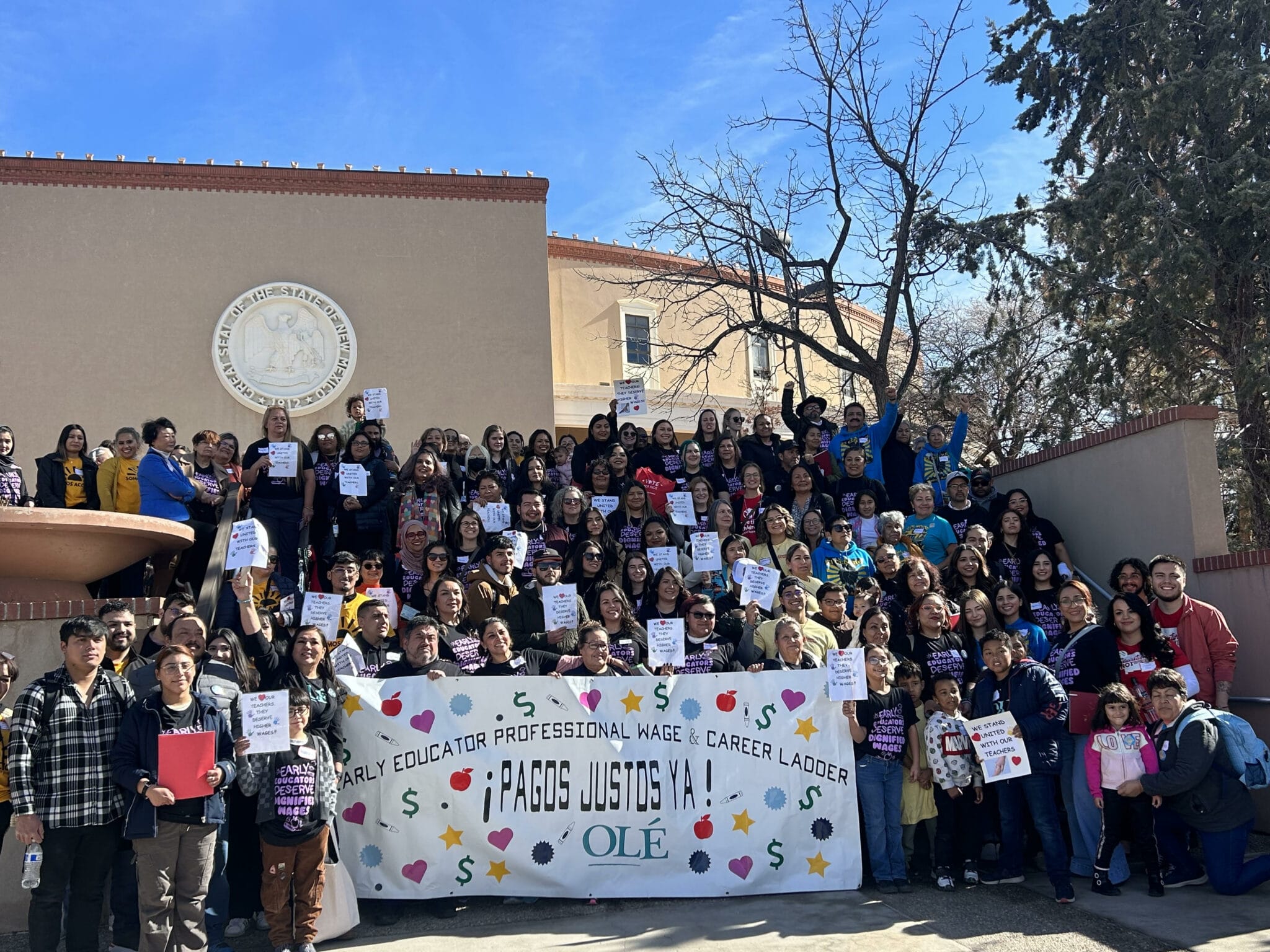New Mexico has accomplished bold reforms to their early childhood education and care system in the last four years, building on over a decade of advocacy and educator organizing. Learn how the fight for fair compensation for early educators was central to the effort – and the political and administrative challenges it continues to face.
Main Findings
Building on more than a decade of grassroots organizing and advocacy, New Mexico leaders have initiated several early care and education policy reforms dedicated to supporting early educator compensation since 2019. The state established a number of ongoing targeted wage supplement programs and used time-limited federal pandemic relief funds to provide a $3/hour raise for educators across the sector. New Mexico has also reformed its subsidy system by dramatically broadening eligibility for families and using a cost model accounting for increased compensation to establish higher reimbursement rates, the first state in the country to do so.
Several elements were key to achieving these reforms and laying the groundwork for long-term change:
- Leadership and a centralized state agency have maintained a bold vision for the systemic reforms and advancing workforce compensation.
- Educator- and community-led organizing proved critical to winning necessary state funding to make good on New Mexico’s vision for compensation.
The state’s recent initiatives do not yet amount to sustained, transformative changes to compensation. However, by establishing key elements for progress and identifying challenges along the way, this case study highlights one state’s journey to advancing early educator compensation.
Suggested Citation
Dade, A., McLean, C., Muñoz, S., & Chávez, R. (2024). Bold Vision, Educator Power, and Focus on Compensation: Laying Groundwork for Transformation in New Mexico. Early Educator Compensation Case Study Series. Center for the Study of Child Care Employment, University of California, Berkeley. https://cscce.berkeley.edu/publications/case-study/new-mexico/



